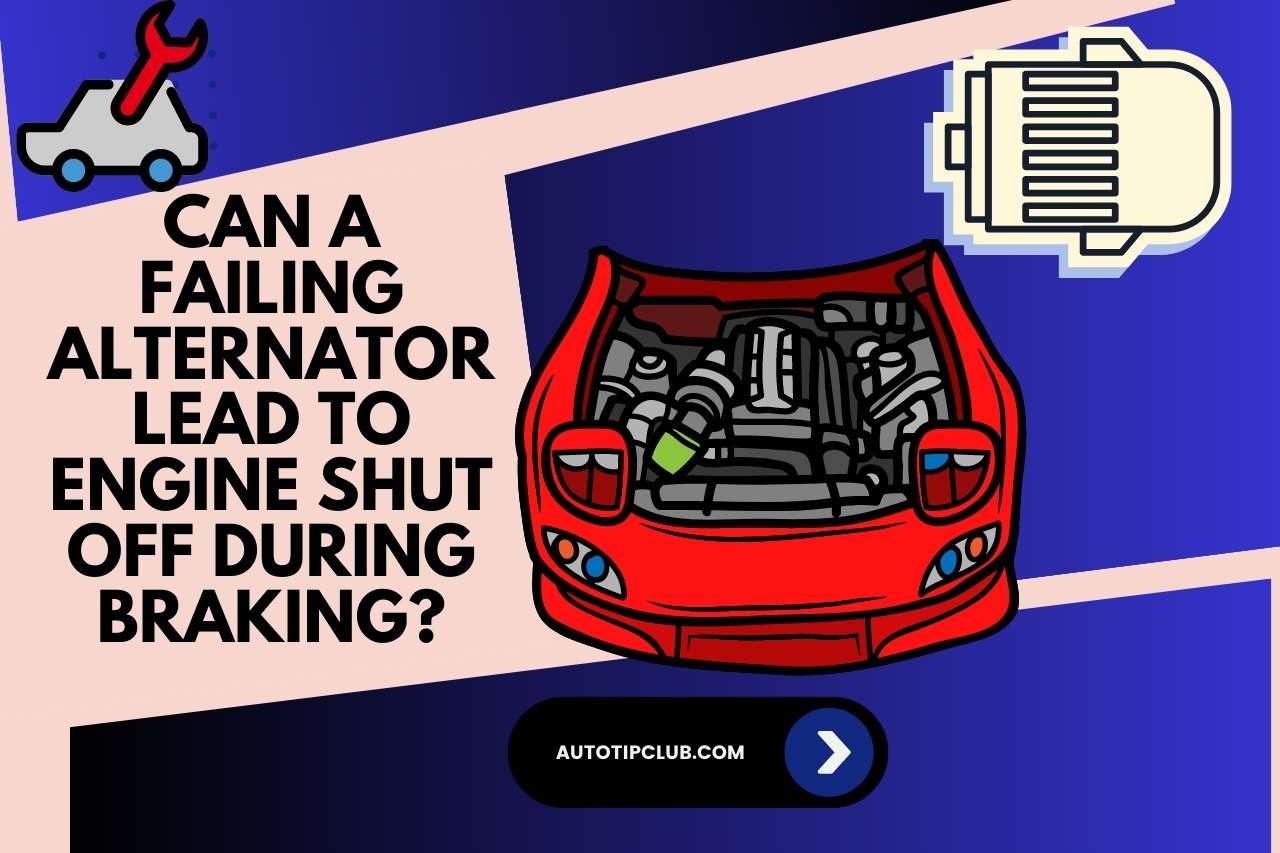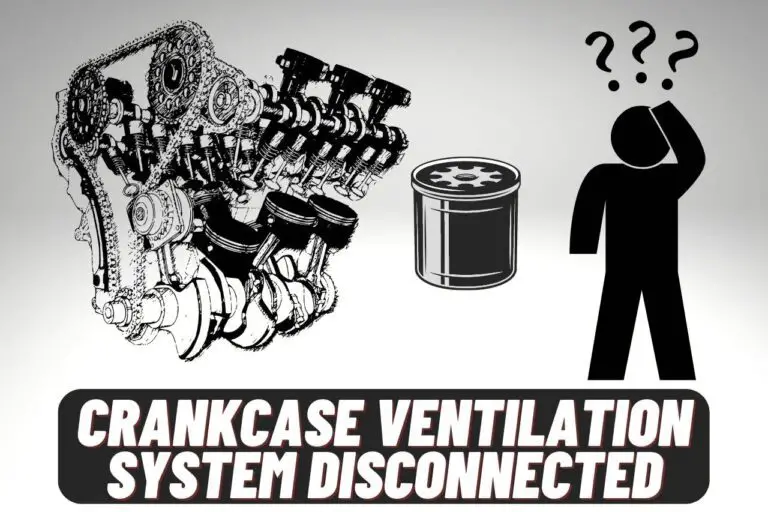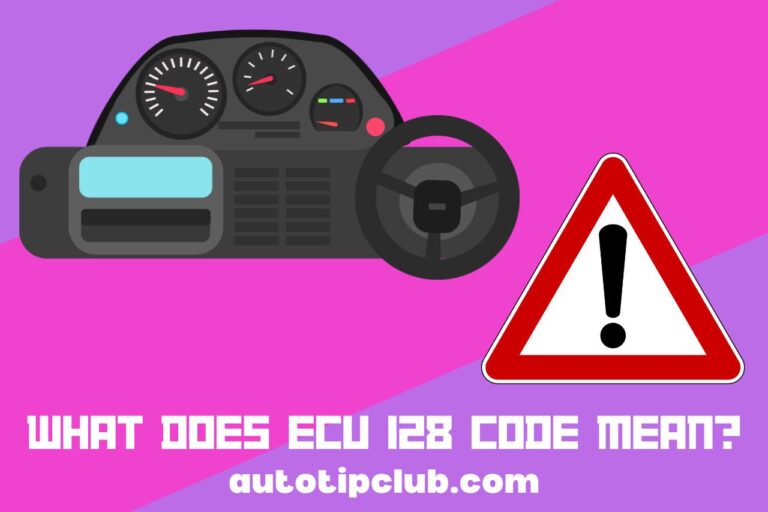The Car Shuts Off When Brakes Are Pressed Why? Diagnosing the Issue
Ever faced the perplexing scenario where your car shuts off when brakes are pressed? It’s not just a unique glitch but a concern tethered to intricate vehicle systems and components. From vacuum leaks to malfunctioning sensors, the potential culprits are numerous. Dive with us as we demystify this automotive mystery, navigating the intersection of braking and engine operations. Your guide to understanding and troubleshooting this unsettling occurrence begins right here
What Role Does the Braking System Play in Vehicle Operations?
The braking system plays an indispensable role in vehicle operations by ensuring the vehicle can decelerate and stop safely.
Primary Function – Safe Deceleration and Stoppage
- At the core of its function, the braking system allows drivers to slow down or halt their vehicles, whether it’s in response to traffic signals, pedestrian movement, other vehicles, or unexpected obstacles.
Holding Brakes
- This term typically refers to brakes that maintain a vehicle’s stationary position, especially on slopes or inclines. Holding brakes prevent unwanted vehicle movement when parked and play a critical role in safety.
Potential Failures and their Implications:
-
- Cut the Brakes: A phrase often used to describe a deliberate act of sabotage, where the brake lines are severed, making the brakes non-functional. This is a dangerous scenario, as a vehicle without functional brakes is a severe threat on the road.
- Brakes Gave Out While Driving: A terrifying experience for any driver, this indicates a brake system failure. Regular maintenance is crucial to prevent such situations, which could lead to accidents.
- Car Turning Off When Braking: This could be indicative of underlying mechanical or electrical issues. If the car engine turns off during braking, it could reduce the power assistance provided to the braking system, making it harder to stop the car.
How Are the Brake System and the Engine Interconnected?
The brake system and the engine are interrelated components, ensuring a vehicle’s smooth operation and safety. Their interconnectedness plays a vital role, especially when considering situations where a car’s engine responds to braking actions.
Engine Performance and Braking
- One of the most immediate connections between the brake system and the engine is how the engine performs during braking. Some drivers often say, “When I hit the brakes, my car shuts off.” This is an anomaly that can be attributed to a vacuum leak or problems with the idle air control valve. The brake booster uses engine vacuum to amplify the force applied to the brake pedal, and any disturbance can affect the engine’s performance.
Engine Stalling Upon Braking
- If a car stops when braking, there might be an issue where the brake system is affecting the engine, such as a malfunctioning power brake booster causing excessive vacuum drag.
Engine and Brake Electrical Systems
- In some vehicles, a faulty electrical connection can cause scenarios where the car shuts off when braking. This can be traced to the electrical systems of both the engine and brakes being linked, and any malfunction can lead to disruptions.
Issues with Idle Speed
- For those who find that “my car turns off when I brake,” it could be due to the engine’s idle speed being set too low. When the additional load of power-assisted braking is applied, the engine might not have enough power to keep running and may stall.
Traction Control and ABS
- Modern vehicles have systems like Traction Control and ABS that communicate with the engine’s control module. If these systems detect conditions like wheel slippage, they might adjust engine output to prevent potential accidents.
What Common Issues Can Cause a Car to Shut Off When Braking?
The common issues that can cause a car to shut off when braking include a faulty brake booster, malfunctions in the idle air control valve, vacuum leaks, electrical system issues, and compromised fuel supply. Regular maintenance can help prevent these problems and ensure safe driving.
Faulty Brake Booster
- A common reason cars might stall during braking is a malfunctioning brake booster. It utilizes the engine’s vacuum to amplify the pressure you apply on the brake pedal. If it’s not working correctly, it can pull too much vacuum, causing the engine to shut off, especially at low speeds.
Idle Air Control Valve Malfunctions
- The idle air control (IAC) valve manages the engine’s idle speed. A defective IAC may not adjust the engine’s speed effectively when you apply the brakes. This malfunction can lead drivers to say, “When I hit the brakes, my car shuts off.”
Vacuum Leaks
- Vacuum hoses, essential for numerous engine functions, can wear out over time. A significant leak can diminish engine power, particularly evident when additional demands, like braking, are made. This situation often results in the car turns off when braking phenomenon.
Issues with Electrical Systems
- Vehicles today heavily depend on complex electrical systems. A glitch in a sensor or a miscommunication between the brake system and the engine due to a faulty connection might be why someone wonders, “Why does my car turn off when I brake?”
Compromised Fuel Supply
- If there’s an obstruction in the fuel supply or a malfunctioning component, the engine might be deprived of the fuel it needs, especially during high-demand actions like braking. This can be attributed to problems like clogged fuel filters or faulty fuel pumps.
Can a Failing Alternator Lead to Engine Shut Off During Braking?
Yes, a failing alternator can lead to the engine shutting off during braking, especially if the vehicle’s electrical demands exceed the alternator’s ability to supply power.
When the alternator is on its last legs, it struggles to provide the necessary electrical power to various car components. Braking involves several electrical components, such as brake lights, ABS systems, and sometimes even power-assisted brakes. If the alternator cannot supply adequate power to these systems, it can put additional strain on the battery. Over time, the battery drains, lacking the power to support the engine’s ignition system and other essential functions. This chain reaction may cause scenarios where drivers complain, “my car turns off when I brake.”
Moreover, other related issues can arise. Some drivers might even feel like their brakes gave out while driving. This sensation can be attributed to power brake systems that rely on engine power. If the engine dies because of electrical problems, it might result in reduced braking efficiency, making it harder to stop the car.
Another common observation is when the engine dies when brakes are applied. It’s essential to understand that it isn’t solely because of the braking action. Instead, it’s the culmination of several electrical components demanding power simultaneously during braking, combined with a compromised alternator.
Lastly, the question of “why does my car turn off when I brake” is often intertwined with other underlying issues, not just the alternator. But if you’ve ruled out common causes like vacuum leaks or fuel supply issues, a failing alternator could indeed be the culprit.



How Does the Power Brake Booster Impact Engine Performance?
The power brake booster primarily impacts engine performance by assisting in brake application using engine vacuum. Its malfunction can cause a range of issues affecting engine behavior.
When discussing the relationship between the power brake booster and engine performance, it’s pivotal to understand the brake booster’s primary function. The power brake booster uses the engine’s vacuum to amplify the force a driver applies to the brake pedal. This system ensures that drivers don’t need to exert significant force to achieve effective braking.
Engine Vacuum and Brake Booster
-
- The brake booster depends on the engine-generated vacuum.
- A decrease in this vacuum can result in the brake booster losing its efficiency.
Engine Performance Impact
-
- Engine dies when brakes applied: A faulty brake booster can allow the engine vacuum to leak, affecting its performance. Consequently, this can lead to situations where the engine may stall or die when the brakes are applied.
- Brakes gave out while driving: If the brake booster malfunctions, drivers might feel like their brakes aren’t responding as they should, giving a sensation of “giving out.”
Car Shutdown Issues
-
- When I hit the brakes my car shuts off: This can arise when there’s a significant vacuum leak caused by the brake booster. The engine doesn’t get the required air-fuel mixture, leading to a shutdown.
- Car shuts off when brakes are pressed: Similar to the above point, if the brake booster drains more engine vacuum than it should, it can result in the engine shutting off.
The power brake booster, while primarily designed for braking assistance, has an intricate relationship with engine performance. Any malfunction in this component can lead to engine performance issues, ranging from stalling to reduced braking efficiency. As always, if one experiences such symptoms, it’s advisable to consult a mechanic for a thorough inspection.
What Immediate Actions Should Drivers Take When Facing car shuts off when brakes are pressed?
When facing the situation where the car shuts off when the brakes are pressed, the immediate actions a driver should take are to ensure safety, diagnose the issue, and seek professional assistance.
Ensure Safety First:
-
- Shift to Neutral: If you’re driving and the engine shuts off when braking, swiftly but safely shift the car into neutral. This can potentially help you restart the engine without coming to a complete stop.
- Use Handbrake: If the engine dies when brakes are applied, and you find it challenging to stop, gradually use the handbrake. This method provides an additional means to slow down the car.
- Switch on Hazard Lights: Alert other drivers about your predicament by turning on the hazard lights, especially if you’re in traffic or on a highway.
Diagnose the Issue:
-
- Restart the Car: Once safe, try to restart the car. If it restarts but shuts off again upon braking, there might be a direct issue with the braking system or its correlation with the engine.
- Check Dashboard Warning Lights: These can offer clues. For instance, if the battery light comes on, it might hint towards electrical issues.
- Recall Recent Events: Think back to any recent incidents. If you remember a scenario where you slammed on brakes and the car shut off, it might indicate a more severe underlying problem.
Seek Professional Assistance:
-
- Call for Roadside Assistance: If the car doesn’t restart or you feel it’s unsafe to drive, call for help. It’s better to be cautious.
- Consult a Mechanic: Describe the symptoms, such as if the car shuts off when brakes are pressed or if the engine dies upon brake application. A thorough inspection will likely pinpoint the cause, whether it’s related to the braking system, engine, or other interconnected parts.
- Avoid DIY Fixes on the Road: Unless you’re sure of the problem and its solution, avoid making any adjustments on the side of the road.
FAQ
What is the connection between a car’s braking system and its engine?
The connection between a car’s braking system and its engine primarily lies in the vacuum brake booster. This booster uses the engine’s vacuum to amplify the brake pedal force, ensuring efficient braking. A malfunction in this connection can lead to reduced braking power and a harder brake pedal feel. Proper synchronization is essential for safety and performance.
Do Injection Engines Stall When Braking?
Injection engines do not typically stall when braking. However, if stalling occurs during braking, it might indicate underlying issues such as a faulty idle air control valve, vacuum leaks, or problems with the brake booster. It’s essential to diagnose and address these issues promptly to ensure safe and efficient vehicle operation.
Why Does A Car Shut Off When Braking With A Bad Vacuum Brake Booster Hose?
A car shuts off when braking with a bad vacuum brake booster hose because this hose provides engine vacuum to the brake booster. If the hose is faulty, it can cause a significant vacuum leak, disrupting the air-fuel mixture. This disruption can lead the engine to stall, especially during braking when engine RPMs are lower. Proper maintenance is key to preventing such issues.
Here’s An Interesting Video To Watch,
VIDEO CREDITS: Auto Time YouTube Channel
Recommended for You: Similar Articles to Explore
- How Long Does an Oil Change and Tire Rotation Take?
- Cords Showing On Tires
- What Does a Car Sound Like When It Needs Oil?
- Do Headers Make Your Car Louder? Ways To Make Car Louder
- The Truth About Transmission Fluid: Does It Expire?



My name is Robot McCullum, and I’m an Automotive Engineer with 20+ years of experience in the automotive field. I’ll give you step-by-step instructions for recognizing and fixing complicated technical problems in an uncomplicated manner. www.AutoTipClub.com, is your best resource for in-depth tutorials, insightful tips, and practical advice designed and developed either for seasoned vehicle collectors or daily drivers.




![What Does a Flat Tire Sound Like? [Reasons Explained]](https://autotipclub.com/wp-content/uploads/2022/11/What-does-a-flat-tire-sound-like-768x512.jpg)


